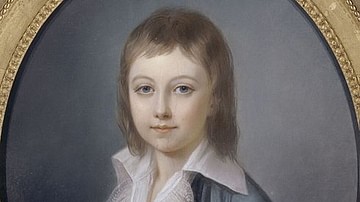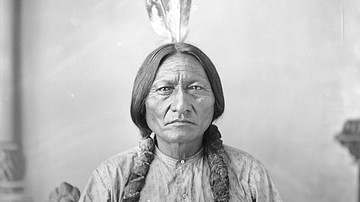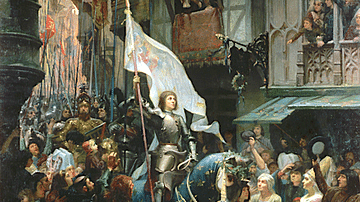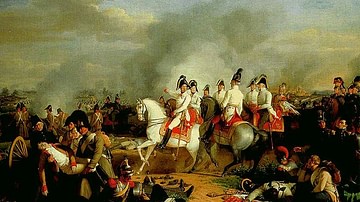Search
Search Results

Article
Causes of the English Civil Wars
The English Civil Wars (1642-1651) were caused by a monumental clash of ideas between King Charles I of England (r. 1625-1649) and his parliament. Arguments over the powers of the monarchy, finances, questions of religious practices and toleration...

Definition
Louis XVII of France
Louis XVII of France was the regnal name of Louis-Charles de France (l. 1785-1795), the younger son of King Louis XVI of France (r. 1774-1792) and Queen Marie Antoinette (l. 1755-1793). Although Louis-Charles never actually reigned as king...

Article
Charles A. Eastman on Crazy Horse
Charles A. Eastman's biography of Crazy Horse (l. c. 1840-1877) is among the most significant sources on the great Sioux war chief, as Eastman drew on accounts of those who had known and fought alongside him in writing it. The work differs...

Article
Charles A. Eastman on Sitting Bull
In his Indian Heroes and Great Chieftains (1916), Sioux author and physician Charles A. Eastman (also known as Ohiyesa, l. 1858-1939), includes a brief biography of the Sioux chief Sitting Bull (l. c. 1837-1890). While some of Eastman's claims...

Definition
Kingdom of West Francia
The Kingdom of West Francia (843-987 CE, also known as The Kingdom of the West Franks) was the region of Western Europe that formed the western part of the Carolingian Empire of Charlemagne (Holy Roman Emperor 800-814 CE) known as Francia...

Definition
Carolingian Dynasty
The Carolingian Dynasty (751-887) was a family of Frankish nobles who ruled Francia and its successor kingdoms in Western and Central Europe during the Early Middle Ages. The dynasty expanded from Francia as far as modern Italy, Spain, and...

Definition
Hundred Years' War
The Hundred Years' War (1337-1453) was an intermittent conflict between England and France lasting 116 years. It began principally because King Edward III (r. 1327-1377) and Philip VI (r. 1328-1350) escalated a dispute over feudal rights...

Article
Battle of Wagram
The Battle of Wagram (5-6 July 1809) was one of the largest and bloodiest battles of the Napoleonic Wars (1803-1815). It resulted in a pyrrhic victory for French Emperor Napoleon I (r. 1804-1814; 1815) whose army crossed the Danube River...

Article
Battle of Aspern-Essling
The Battle of Aspern-Essling (21-22 May 1809) was a major battle of the Napoleonic Wars (1803-1815). It saw an Austrian army under Archduke Charles defeat a French army led by Emperor Napoleon I (r. 1804-1814; 1815) as it attempted to cross...

Definition
English Civil Wars
The English Civil Wars (1642-1651) witnessed a bitter conflict between Royalists ('Cavaliers') and Parliamentarians ('Roundheads'). The Royalists supported first King Charles I of England (r. 1625-1649) and then his son Charles II, while...